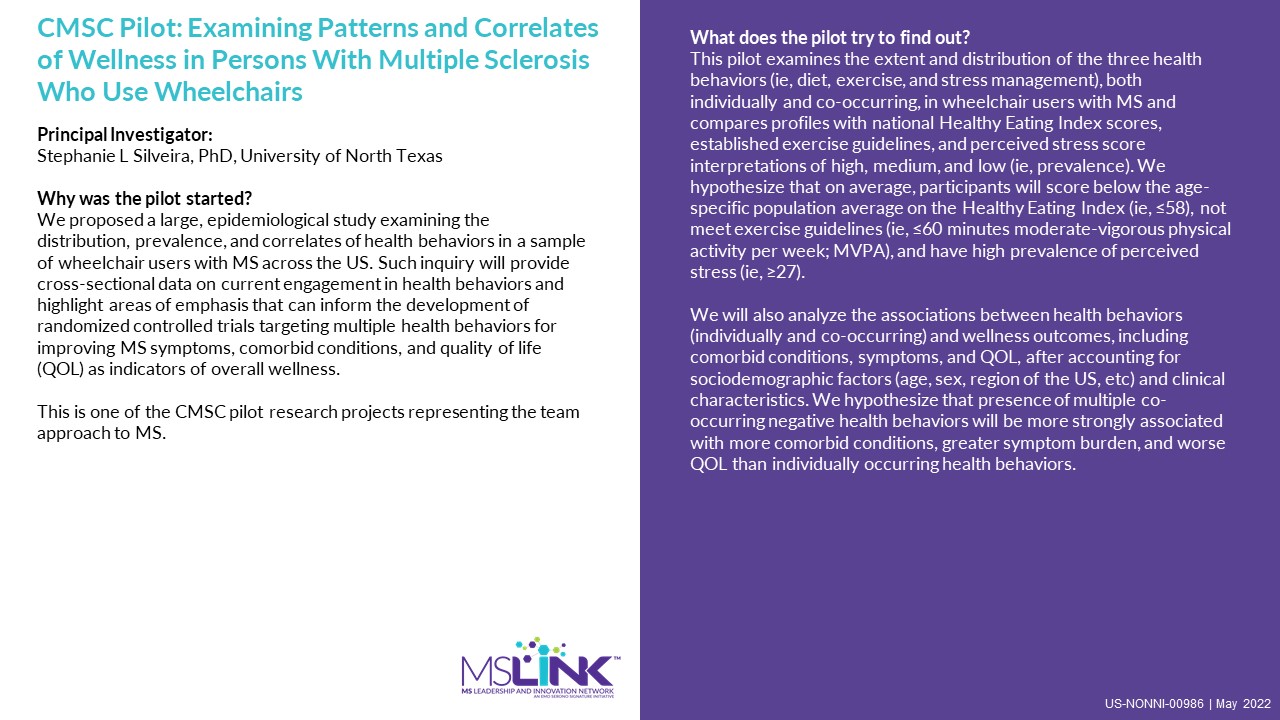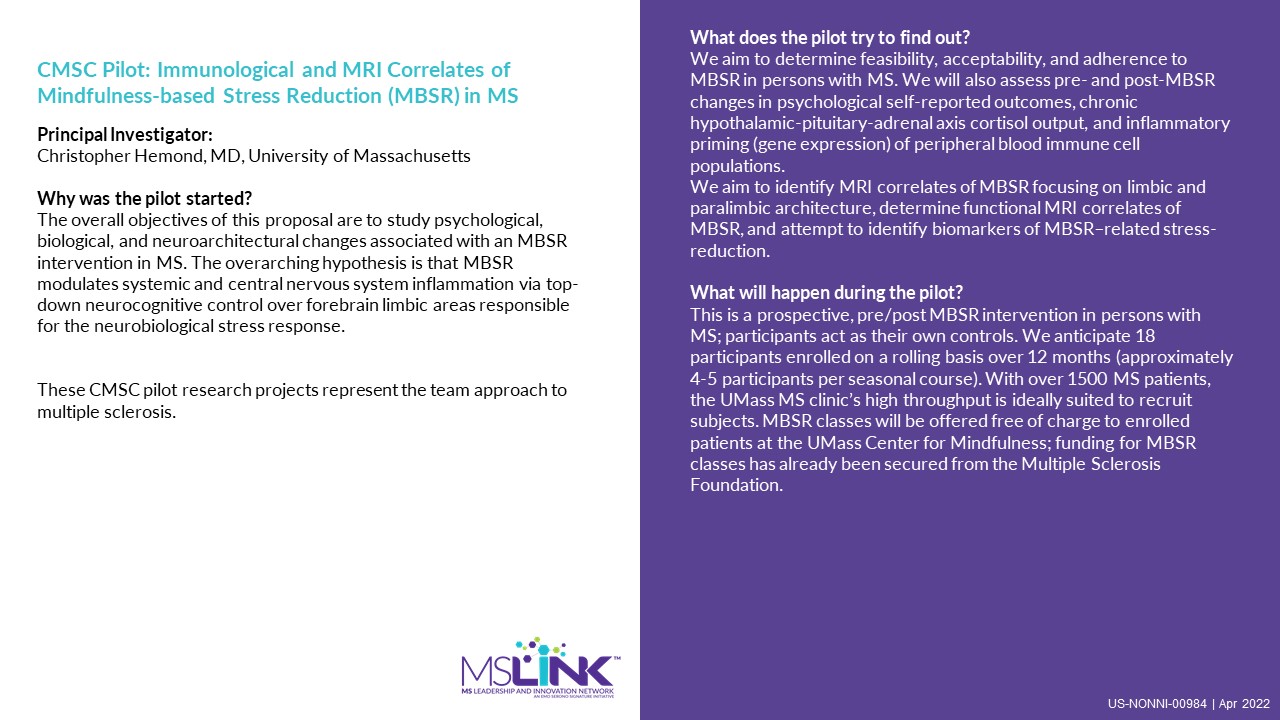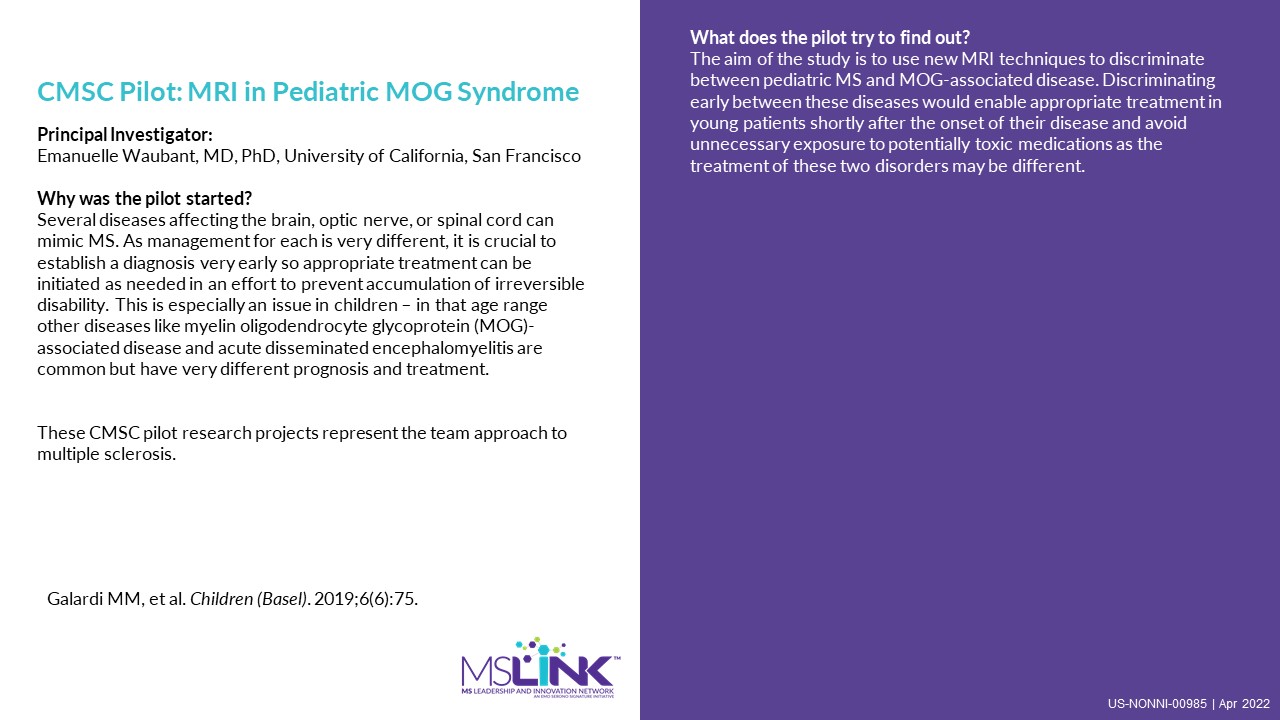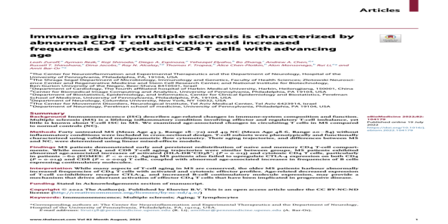Antigenome Signatures
The goal of this study is to identify autoantigen signatures to understand and predict multiple sclerosis pathogenesis and also patient responses to interferon beta-1a therapy
Partner: Tedder, Duke University; Bennett, University of Colorado
Status: Complete

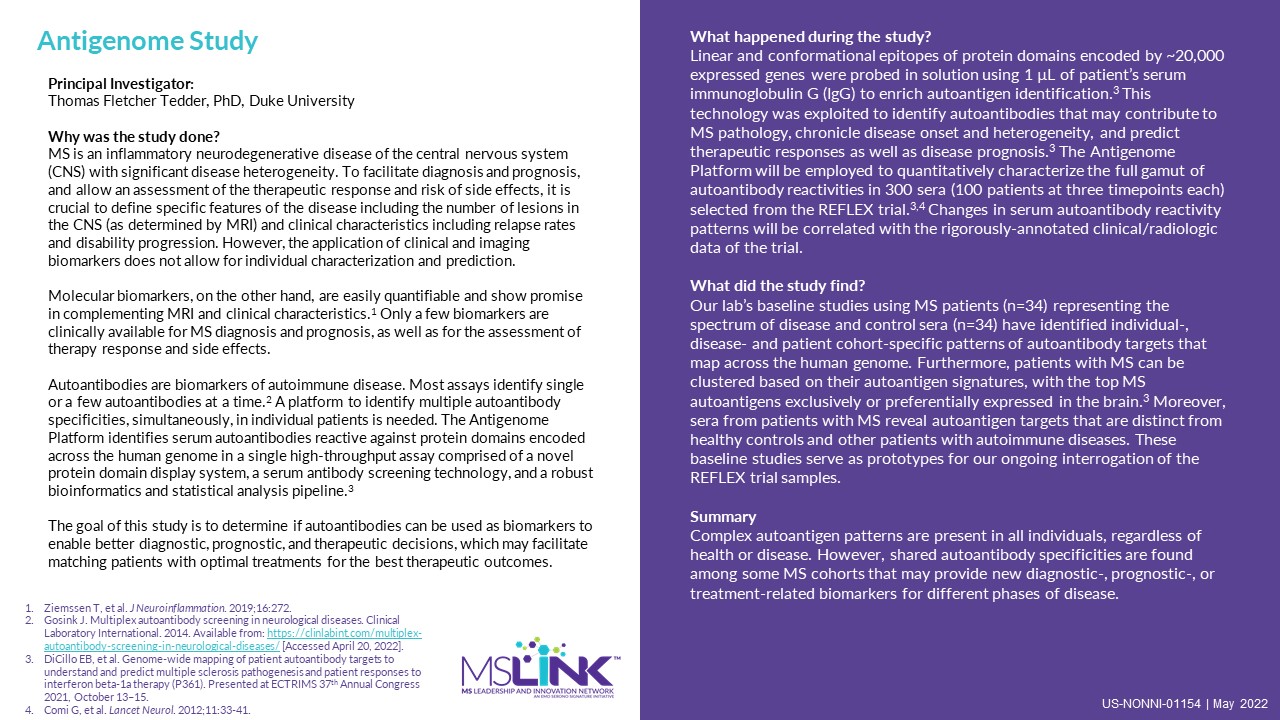

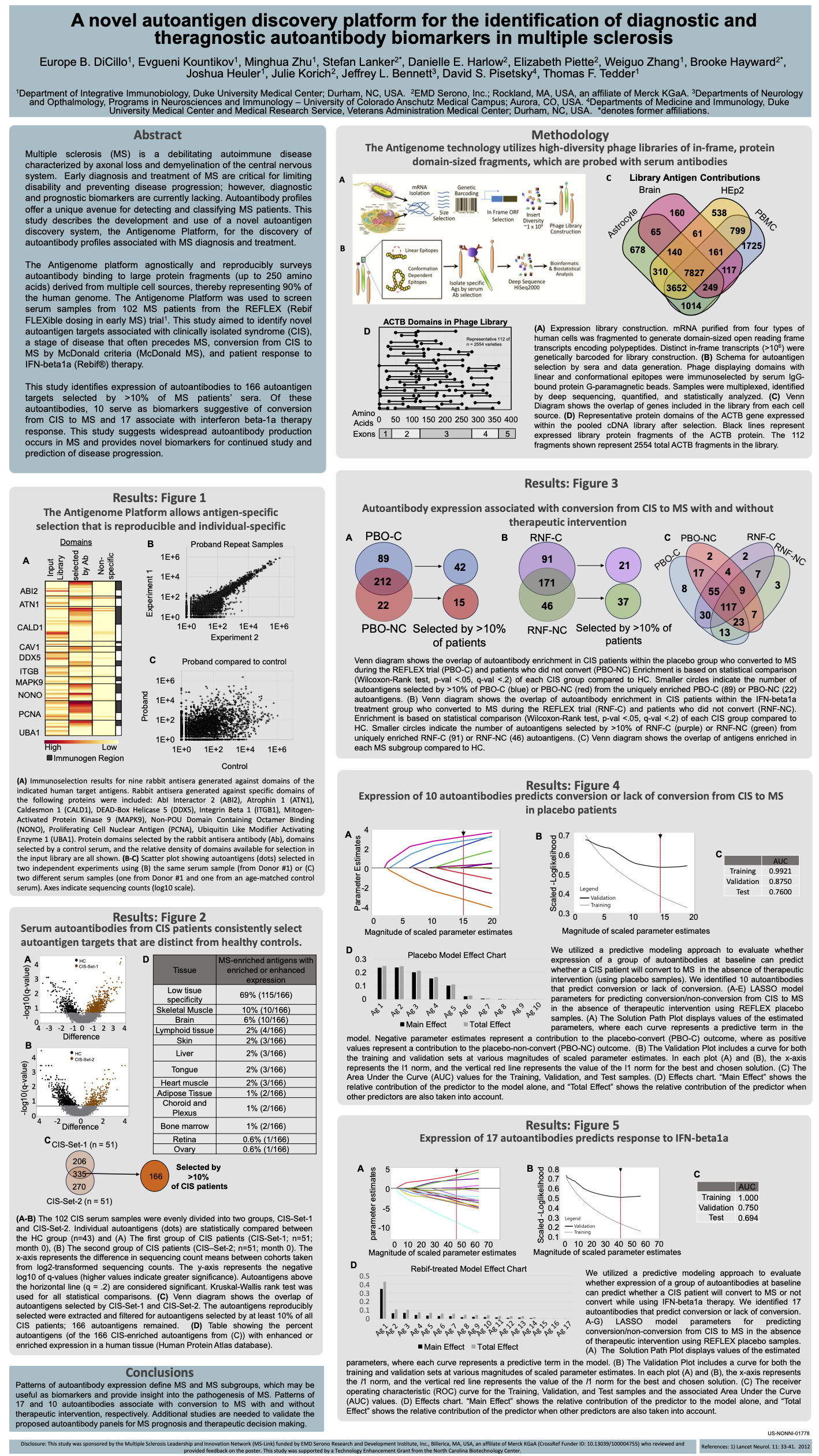
Immunome Pilot
This study aims to examine the T cells, B cells, and innate immune cells of people with MS to describe age-related changes and compare them against people without MS
Partner: Bar-Or, Univ. of Pennsylvania
Status: Complete

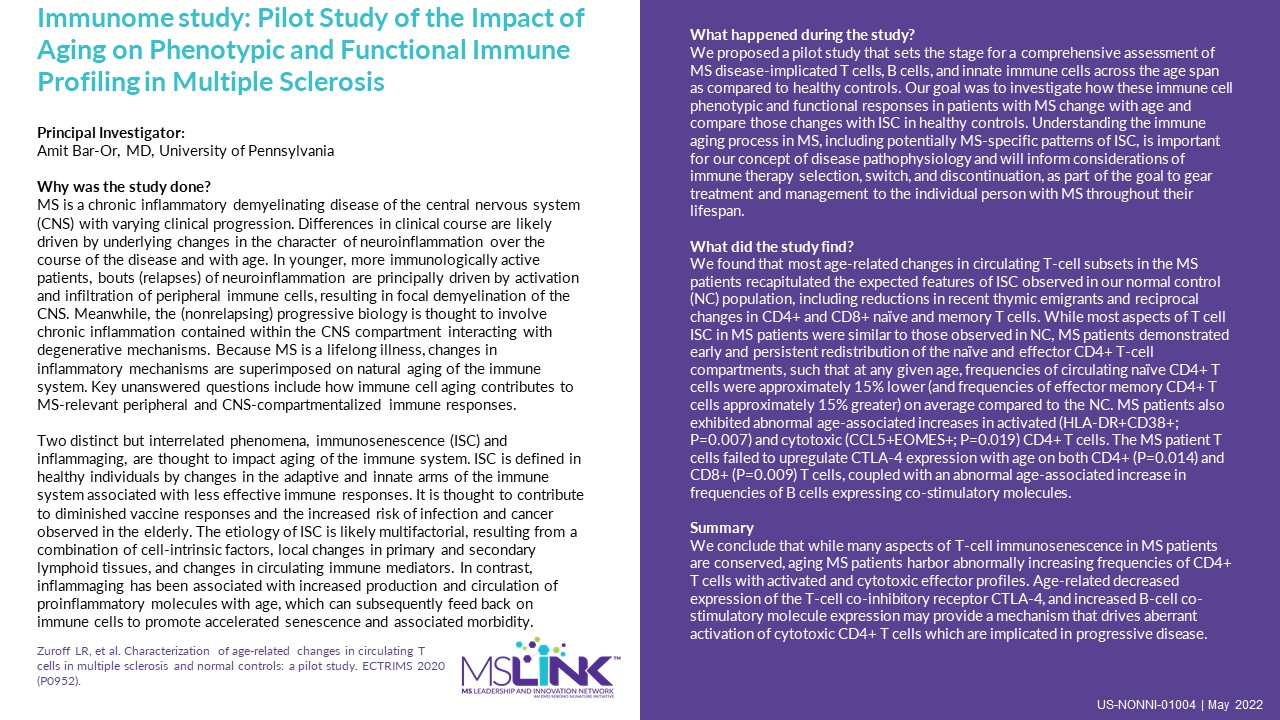

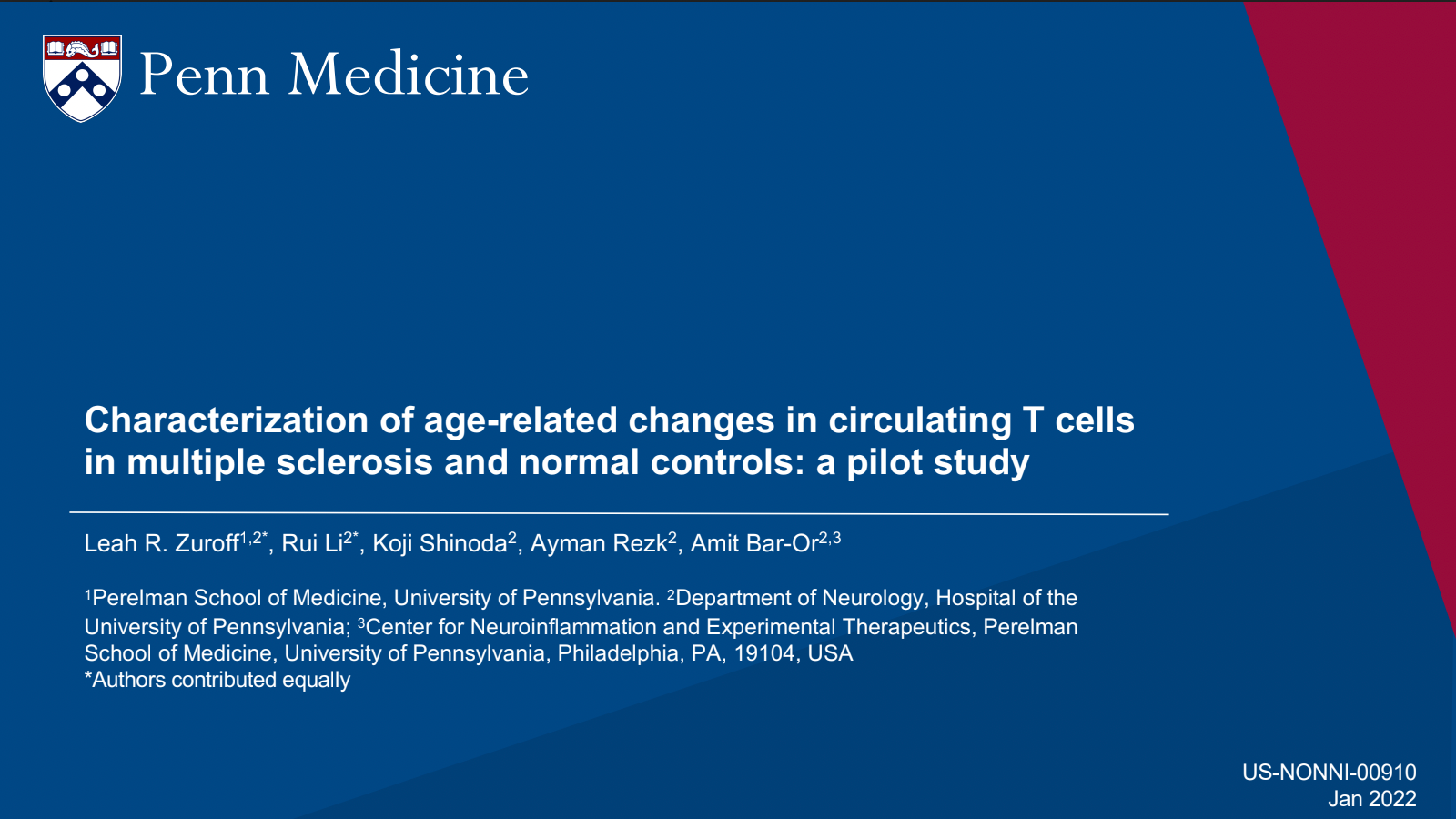
DISCOMS Extension
This study aims to provide data on the durability of disease inactivity, and potential risks, after discontinuing DMT(s) in MS
Partner: Cutter, University of Alabama; Corboy, University of Colorado
Status: Complete

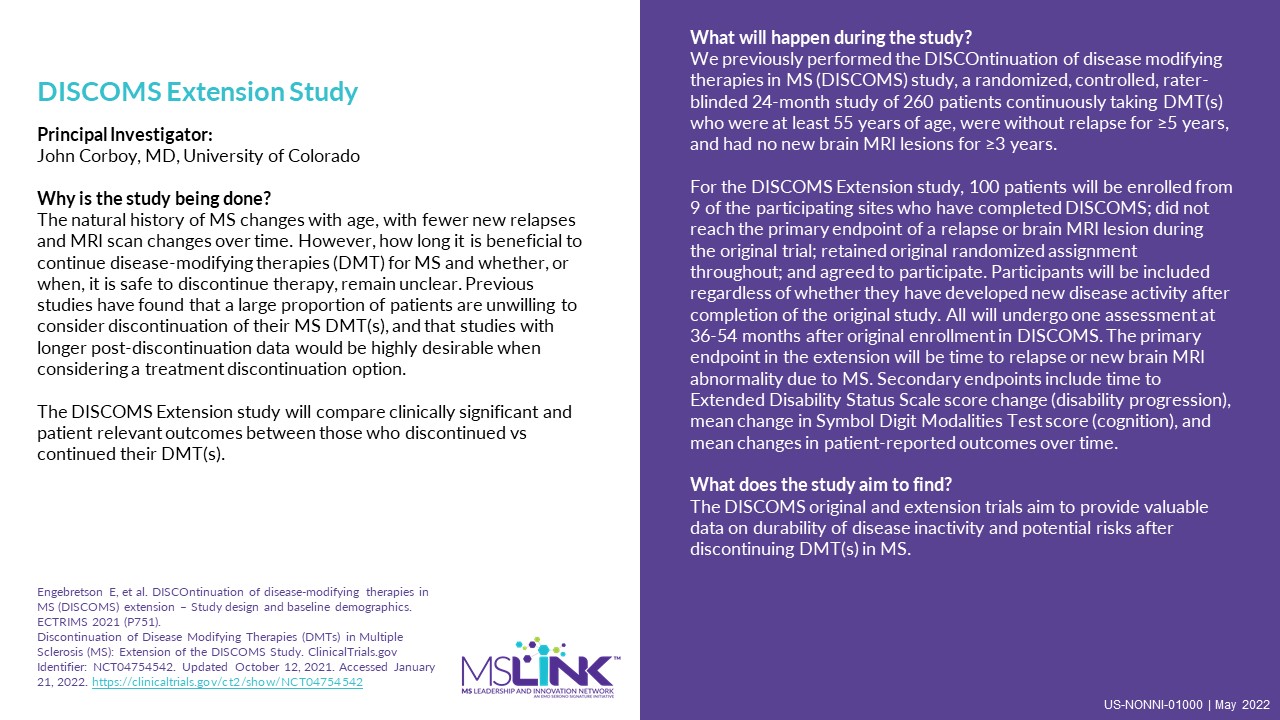

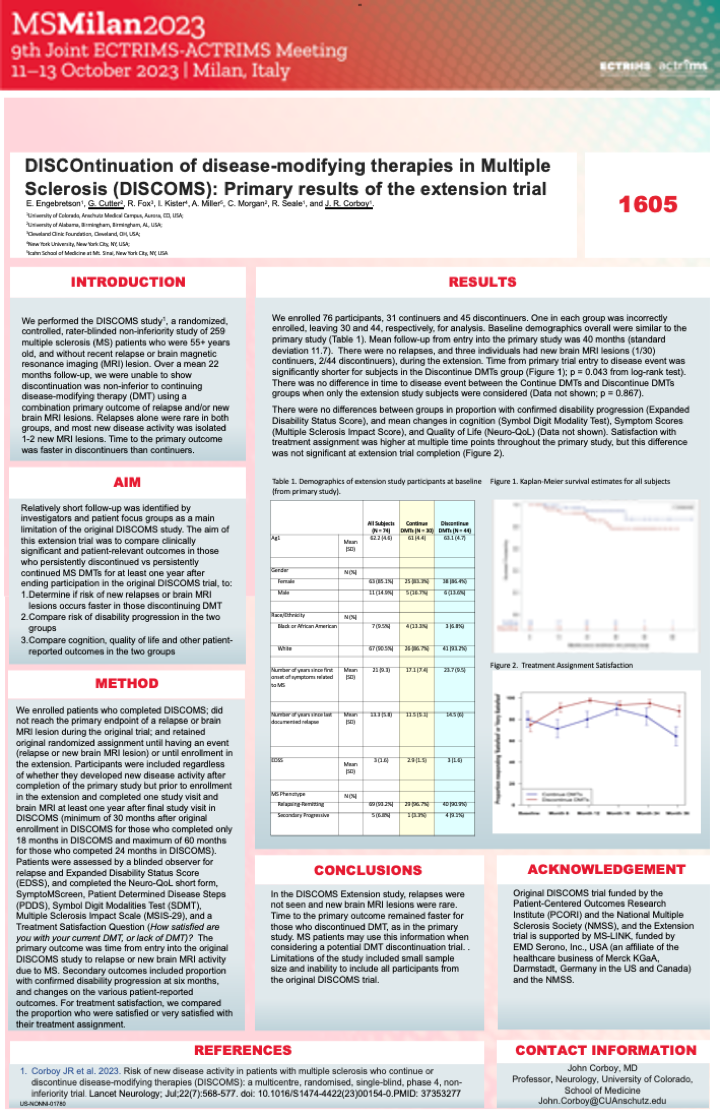
MRF Pilots X 3
This pilot program will develop assays to isolate and define extracellular vesicles (EVs) as biomarkers for specific CNS cell populations and assess EVs as markers for CNS remyelination and repair
MRF Pilot Grant 1: This study aims to identify biomarkers related to neurodegeneration in MS by measuring levels of multiple synaptic proteins in plasma-derived neuronally-enriched exosomes
Partner: Bhargava, Johns Hopkins University
Status: Complete
MRF Pilot Grant 2: This study aims to determine if extracellular vesicles (EVs) may serve as biomarkers for chronic active, Rim+ lesions that are associated with more aggressive disease progression and poorer clinical outcomes in patients with MS
Partner: Linden, Weill Cornell Medicine
Status: Complete
MRF Pilot Grant 3: This study aims to explore whether 24 weeks of aerobic exercise promotes remyelination in the white matter or chronic MS lesions of patients with MS, and to explore the relationships between demyelination in the brain and EV profiles in MS
Partner: Rooney, Wooliscroft, OHSU
Status: Ongoing

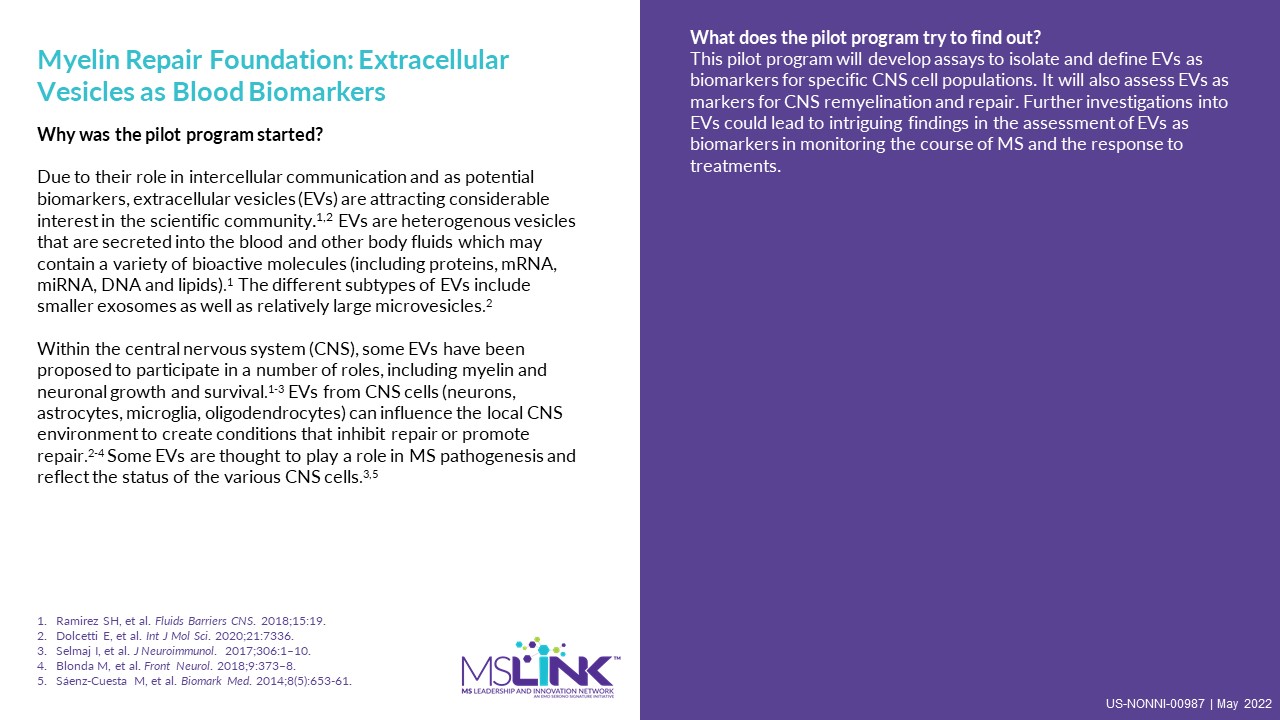
MS Brain Bank Harmonization
This study aims to explore mechanisms related to the general brain atrophy seen in MS by assembling a collection of frozen neocortical samples from 6 brain banks into a single dataset with harmonized phenotypic information and a coherent set of proteomic data
Partner: De Jager, Columbia University
Status: Ongoing

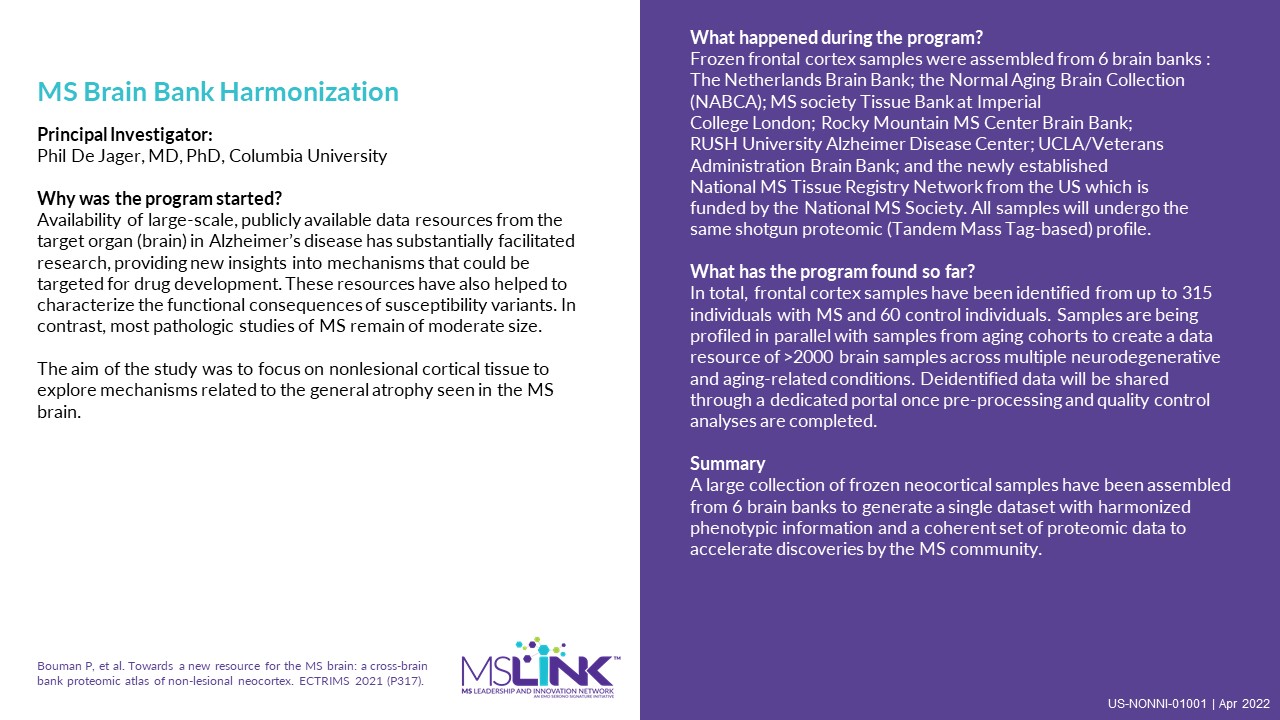

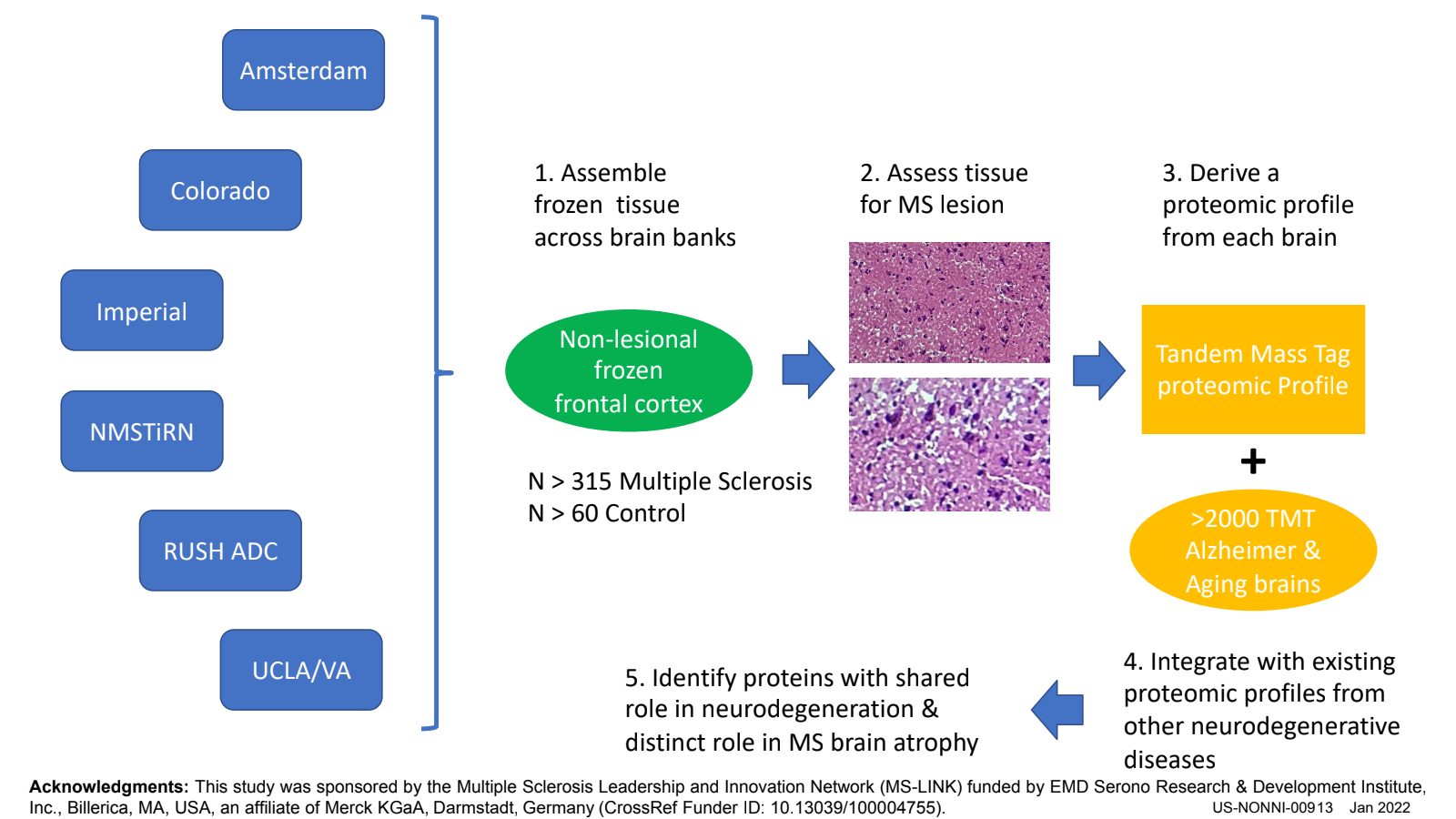
CMSC X 4
The CMSC pilot research projects aim to support unique, novel ideas with the potential to help improve MS patient outcomes and quality of health.
1. Examining Patterns and Correlates of Wellness in Persons With Multiple Sclerosis Who Use Wheelchairs: This epidemiological study aims to examine the distribution and prevalence of health care behaviors, and their association with wellness outcomes, in a sample of wheelchair users with MS across the US
Partner: Silveira, University of North Texas
Status: Complete
2. Immunological and MRI Correlates of Mindfulness-based Stress Reduction (MBSR) in MS: This study aims to examine the psychological, biological, and neuroarchitectural changes associated with Mindfulness-based Stress Reduction (MBSR) in people with MS
Partner: Hemond, University of Massachusetts
Status: Ongoing
3. MRI in Pediatric MOG Syndrome: This study aims to use new MRI techniques to differentiate between MS and MOG-associated disease in pediatric patients
Partner: Waubant, University of California, San Francisco
Status: Complete
4. Understanding Psychiatric Comorbidity in Multiple Sclerosis Using Genomics
Partner: Kowalec, University of Manitoba
Status: Complete

